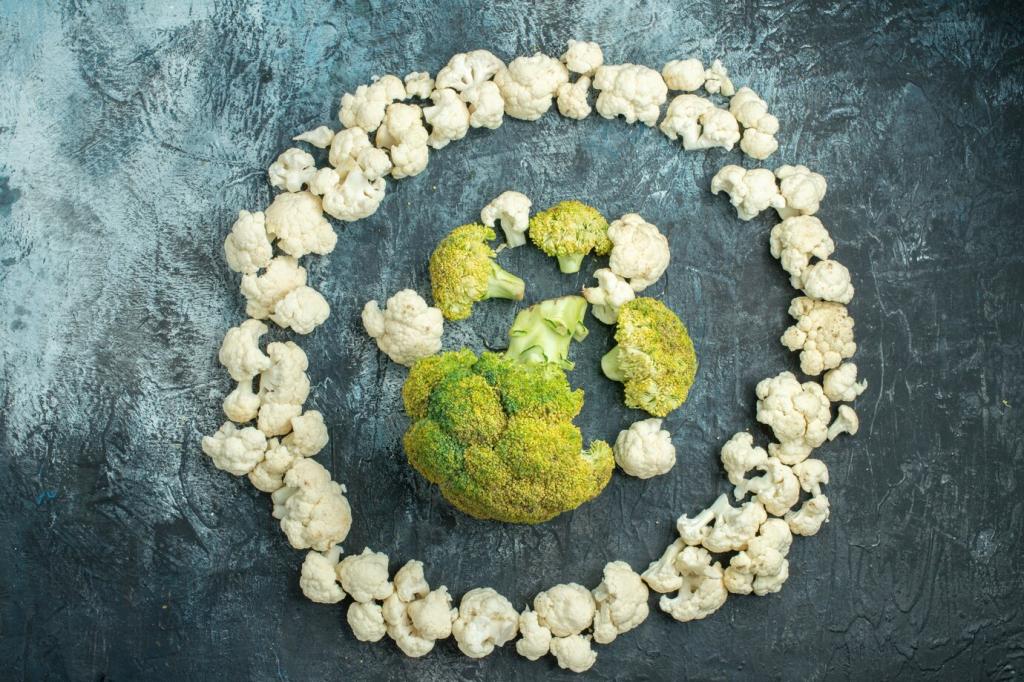
Plant-Based Cheese Creations: A Guide to Alternatives
Plant-based cheese alternatives have gained remarkable popularity among those seeking dairy-free options for dietary, ethical, or environmental reasons. With an ever-expanding variety of flavors, textures, and ingredients, plant-based cheeses are no longer an afterthought at the dining table—they’re starring in recipes that were once dominated by traditional dairy. This guide will take you through the essentials of plant-based cheese, highlighting popular ingredients, exploring beloved varieties, offering kitchen inspiration, and navigating the world of pairing these delicious alternatives.


Nut-Based Cheeses
Nuts, especially cashews, almonds, and macadamias, are a favorite base for artisan vegan cheeses due to their rich, creamy mouthfeel. Soaked and blended nuts yield textures that range from smooth spreads to firm, sliceable blocks. By adding cultures and letting the mixture ferment, the resulting cheese develops tang and complexity similar to traditional dairy cheese. Nut-based options are also popular for their healthy fats, but those with nut allergies should be cautious and seek out alternatives.
Soy and Legume Varieties
Soy stands triumphant in both savory and neutral applications, owing to its protein content and familiar flavor profile. Soy-based cheeses like tofu ricotta and soy mozzarella combine versatility with a mild taste, making them a go-to for melting applications on pizza and lasagna. Beyond soy, other legumes—including chickpeas and lentils—are finding their way into innovative recipes, providing creamy bases and being suitable for those avoiding nuts or coconut.
Coconut and Starch-Based Options
Coconut milk and oil have revolutionized the plant-based cheese scene by lending rich, dairy-like consistency and mouthfeel. When combined with starches such as tapioca or potato, the resulting product takes on elasticity and stretch, mimicking the gooey melt of mozzarella. While coconut cheeses can be higher in saturated fat, their unique texture is often unmatched, and advances have brought coconut-based blue cheese and brie-style options onto the market.
Plant-Based Cheddar
Vegan cheddars are typically sharp, crumbly, and satisfyingly robust, making them an ideal swap in sandwiches, burgers, and classic macaroni dishes. Often made with combinations of nuts or soy and fermented for depth, these cheeses can range from mild to extra sharp. Many producers focus on the vivid orange color and firm, sliceable texture associated with dairy cheddar, ensuring that plant-based versions are visually and texturally convincing in any recipe.
Creamy Spreads and Soft Cheeses
For those who cherish the rich decadence of brie, camembert, or classic cream cheese, plant-based alternatives offer spreadable luxury without the dairy. These cheeses are usually crafted from blended cashews or macadamia nuts, inoculated with cultures for mild tanginess, and aged for a delicate, soft rind. They shine on morning bagels, served with fruit, or as part of an elegant antipasto platter, delivering the creamy satisfaction cheese lovers crave without compromising on ethics or allergens.
Artisan and Aged Specialties
Small-batch vegan cheesemakers are experimenting with bold flavors, aging techniques, and unique ingredients to create truly gourmet products. Blue cheeses, peppercorn-studded rounds, and smoked wheels are now available, some aged for weeks or even months to develop deep flavor profiles and a satisfying bite. These artisan options showcase the potential of plant-based cheese to thrill the palate of even the most dedicated cheese connoisseur.
Previous slide
Next slide
